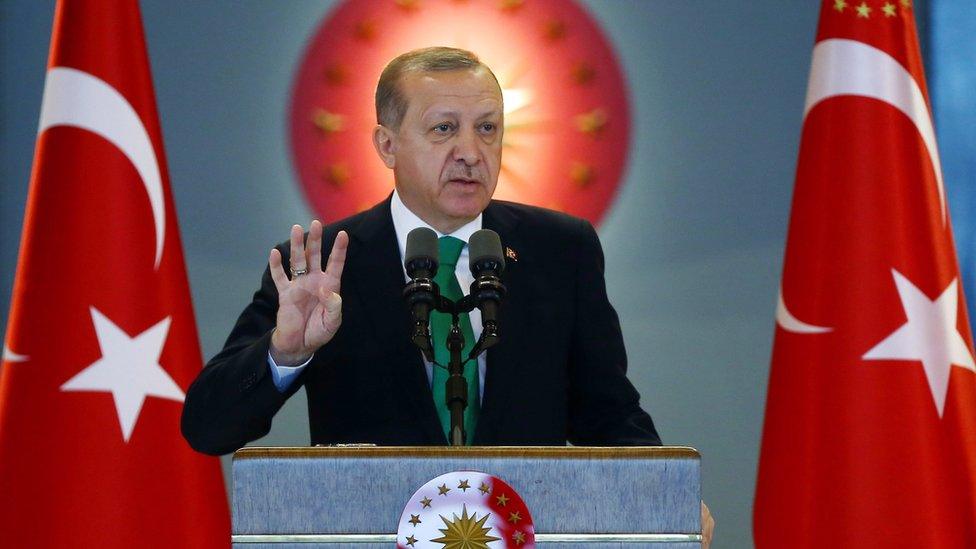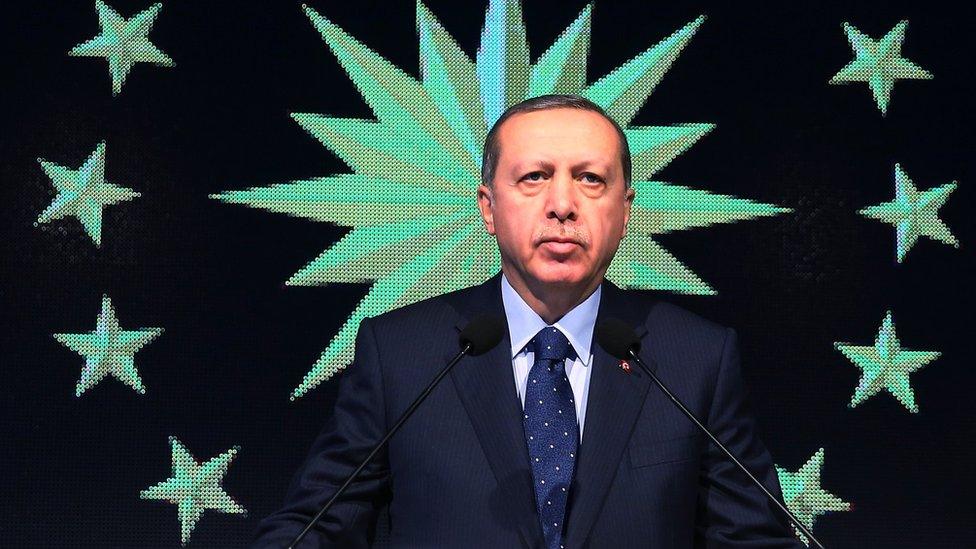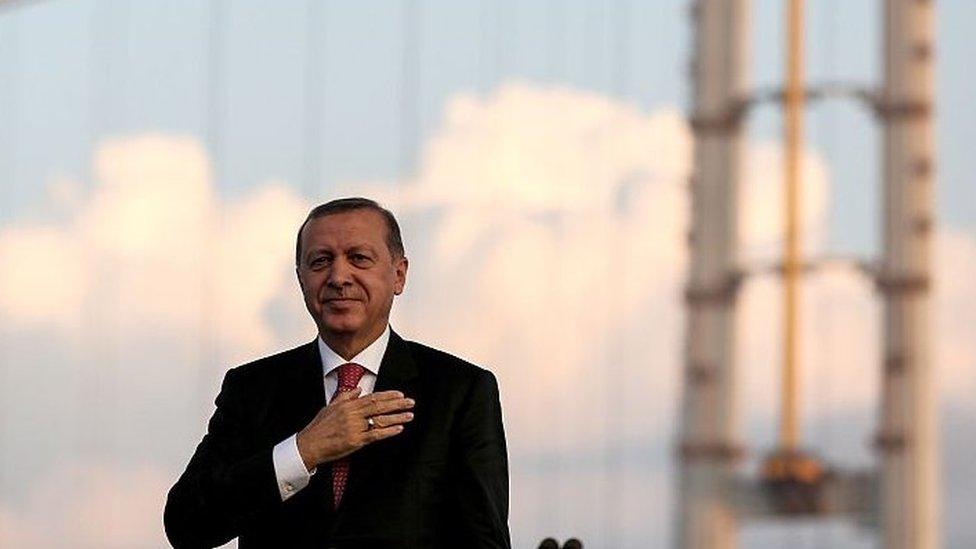Turkish MPs hold final vote on boosting Erdogan powers
- Published

Mr Erdogan says the proposed changes will make government more stable
Turkish MPs are holding a second and final round of voting on constitutional changes to give President Recep Tayyip Erdogan sweeping new powers.
Under the plans, the president will be able to choose ministers and judges and the prime minister post will be axed.
Seven out of 18 articles were passed overnight. If MPs back the rest in the coming days, a referendum will follow.
Mr Erdogan says the package will create more stable government, but critics see it as a dangerous power grab.
He says the proposed changes will establish an executive presidential system like those in France and the United States.
It would be Turkey's first executive presidency in its modern history.
The constitutional amendments will also:
Change the president from a primarily ceremonial role to sole executive head of state
Give the president the power to enact some laws by decree
Create at least one vice-president post
Increase the number of MPs to 600 from 550
Lower the minimum age for lawmakers from 25 to 18
Allow the president to be a member of a political party
Stipulate that presidential and parliamentary elections be held simultaneously every five years
The Islamist-rooted governing AK Party (AKP) gained the three-fifths majority needed to give the package preliminary backing on Sunday, with the support of the right-wing Nationalist Movement Party, the fourth largest party in the legislature.
The Republican People's Party (CHP), the biggest opposition party, opposes the changes, and debates have been heated.
Last week a fight broke out in parliament after the AKP clashed with CHP members, when an MP tried to film a voting session during a debate.
A fight broke out in Turkish parliament last week when an MP tried to film a voting session
On Wednesday, US-based Human Rights Watch said the proposed changes pose a "huge threat to human rights, the rule of law, and the country's democratic future", describing them as a bid for "one-man rule".
"The government is rushing the bill through parliament during a state of emergency and a crackdown in which the independent media has been silenced and public debate restricted," it added.
Turkey has been in a state of emergency since a failed coup in July. The status was extended after a series of attacks on the country, including a mass shooting in an Istanbul nightclub on New Year's Eve.
Mr Erdogan, 62, came to power in 2002, a year after the AKP's formation.
He spent 11 years as Turkey's prime minister before becoming, in 2014, the country's first directly-elected president - a supposedly ceremonial role.
- Published16 January 2017

- Published24 March

- Published17 July 2016
